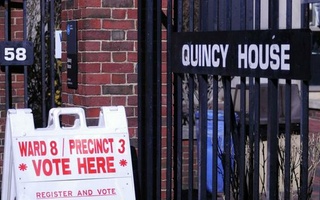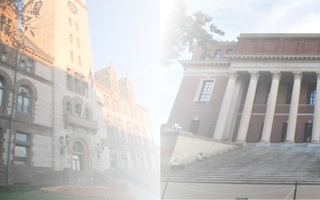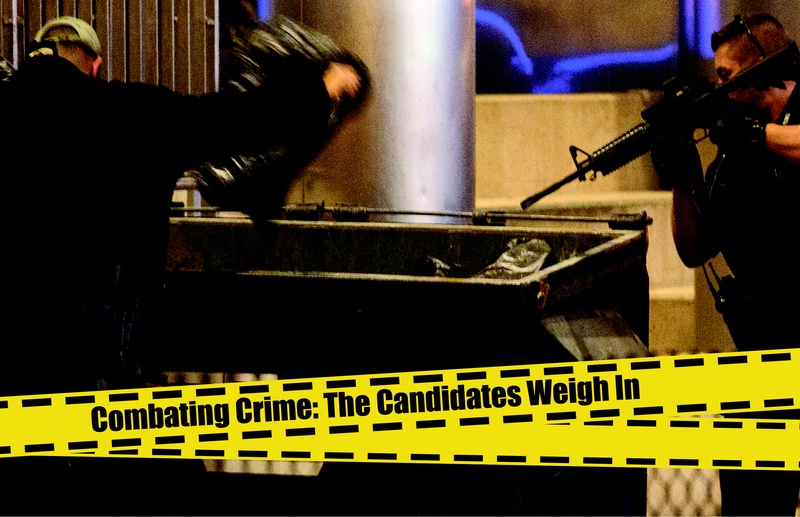Part II of a five-part series on Cambridge City Council election issues. Read each installment on the Fridays leading up to the Nov. 5 election. Part I ran on Oct. 4 and Part III ran on Oct. 18.
Less than six months ago, Cambridge’s bustle was replaced by a silence punctuated only by police sirens, as the city shut down to hunt two of its own: Dzokhar and Tamerlan Tsarnaev, the alleged perpetrators of the Boston Marathon bombings.
With the Cambridge City Council election just less than four weeks away, candidates reflected in interviews with Crimson reporters last week on how this tragedy has affected Cambridge’s character and what can be done to address the issues of safety and crime brought to light by these events.
The incident revealed that as city councillors, candidates may have to address not just street surveillance and the management of everyday criminal acts in Cambridge but even terrorism prevention.
“This has been a really reflective time, these past six months,” said candidate Jefferson R. Smith. “[The bombings] occurred right across the river, but it was really in our own front yard in terms of the people that perpetrated the crime.”
CLOSE TO HOME
While the rest of the nation struggled to comprehend how two people could commit such an act as the bombings, Cambridge residents also tried to understand how those same people could have lived as neighbors without giving any indication of their intentions.
“Those two brothers came here from the former USSR and somehow felt alienated and turned against the system,” said City Council candidate James Lee.
Candidate Lesley R. Phillips, who lives with her partner close to Cambridge Rindge and Latin School, where the Tsarnaev brothers attended high school, remarked that she had “probably parked in front of the Tsarnaev household more than a dozen times.”
“They were students at Rindge and Latin,” Phillips said. “I’m sure that we crossed paths more than once.”
Yet candidates expressed uncertainty about the possibility of formulating a standardized response policy to what they deemed an extreme occurrence.
“This was a one-shot incident,” said candidate Gary W. Mello. “I don't think there was anything that any specific policy [could do] that would have prevented it.”
Phillips said that the two perpetrators never stood out as potential criminals. “Every report that I’ve heard is that both these fellows were unremarkable in their high school records and interactions, that the Department of Education, the police, and everybody else who looked into it did not miss any clues because there were no clues to pick up on,” she said.
Candidate Luis Vasquez agreed that not much could have been done in the way of prevention.
“They flew under our radar and there's nothing that a police officer [could do] to stop all the planning behind that,” Vasquez said.
Read more in News
2014 President's Challenge Awaits Budding EntrepreneursRecommended Articles
-
No Murders Occur in Cambridge in 2010The Cambridge Police Department reported that last year saw no murders in the city, just the fourth time in the past 50 years that no murders have occurred in Cambridge.
-
Students Volunteer For GOP HopefulsWith the Republican primaries still in a deadheat, the Harvard Republican Club has shied away from making an endorsement and maintained a liason structure that allows for members to contribute to the Republican campaigns of their choice.
-
Cambridge Sees Dip in Crime Rates in 2011The Cambridge Police Department reported on Wednesday that crime in Cambridge has reached a historic low. The Department responded to the lowest registered number of incidents since 1963.
-
 What You Need To Know For Election Day
What You Need To Know For Election Day -
Boston to Vote for Candidates to Advance in General Mayoral ElectionToday marks the first time in 20 years that Boston will vote on a mayoral ballot that does not include so-called "Mayor for Life" Thomas M. Menino. Instead, Bostonians will choose two of 12 candidates in the open preliminary elections to advance to a general election on Nov. 5.
-
 Town and Gown
Town and Gown














